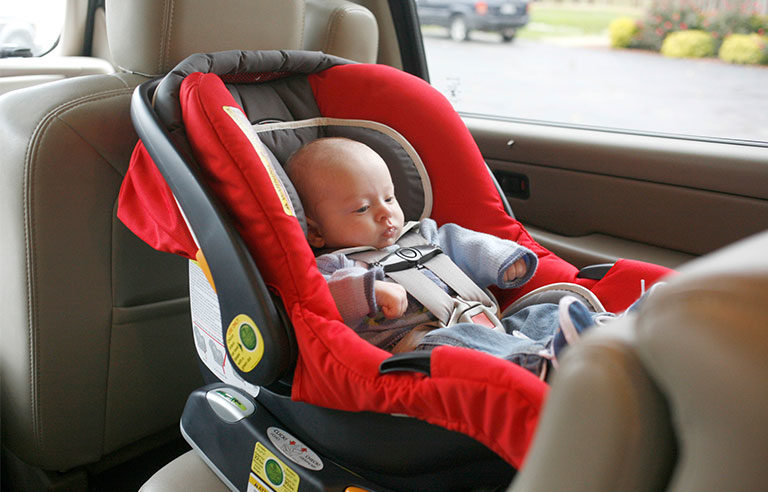Keep children in rear-facing car seats ‘as long as possible,’ pediatrician group says

Photo: NHTSA
Itasca, IL — The American Academy of Pediatrics is advising parents to keep children in rear-facing car seats until they reach the maximum weight or height limit indicated on the seat, rather than using age as a guide.
Previous academy guidelines stated children could face forward at age 2.
According to AAP, “when a child rides rear-facing, the head, neck and spine are all supported by the hard shell of the car safety seat, allowing the car seat to absorb most of the crash forces, and protecting the most vulnerable parts of the body.”
Child car seats typically come with an instruction manual, in which parents can find the seat’s height and weight limits from the manufacturer.
When it comes to transitioning children from seat to seat, AAP recommends the following:
- Infants and toddlers should ride rear-facing for “as long as possible,” until they reach the seat’s height or weight limit.
- Once children switch to forward-facing seats, they should be in a seat that has a harness until they reach that seat’s height or weight limit.
- When children outgrow the harness seat, they should travel in a belt-positioning booster seat until the seat belt properly fits across their lap and shoulder. This often occurs when a child is 4 feet, 9 inches tall and 8 to 12 years old.
- All children younger than 13 should be restrained in the back seat of vehicles.
“Car crashes remain a leading cause of death for children,” Benjamin Hoffman, M.D., chair of the AAP Council on Injury, Violence and Poison Prevention, said in an Aug. 30 press release. “Over the past 10 years, four children 14 and younger died each day. We hope that by helping parents and caregivers use the right car safety seat for each and every ride that we can better protect kids and prevent tragedies.”
The updated policy statement and accompanying technical report were published online Aug. 30.
Post a comment to this article
Safety+Health welcomes comments that promote respectful dialogue. Please stay on topic. Comments that contain personal attacks, profanity or abusive language – or those aggressively promoting products or services – will be removed. We reserve the right to determine which comments violate our comment policy. (Anonymous comments are welcome; merely skip the “name” field in the comment box. An email address is required but will not be included with your comment.)

